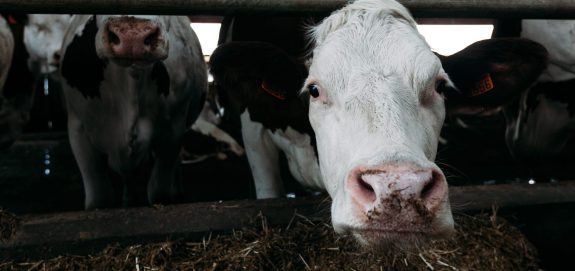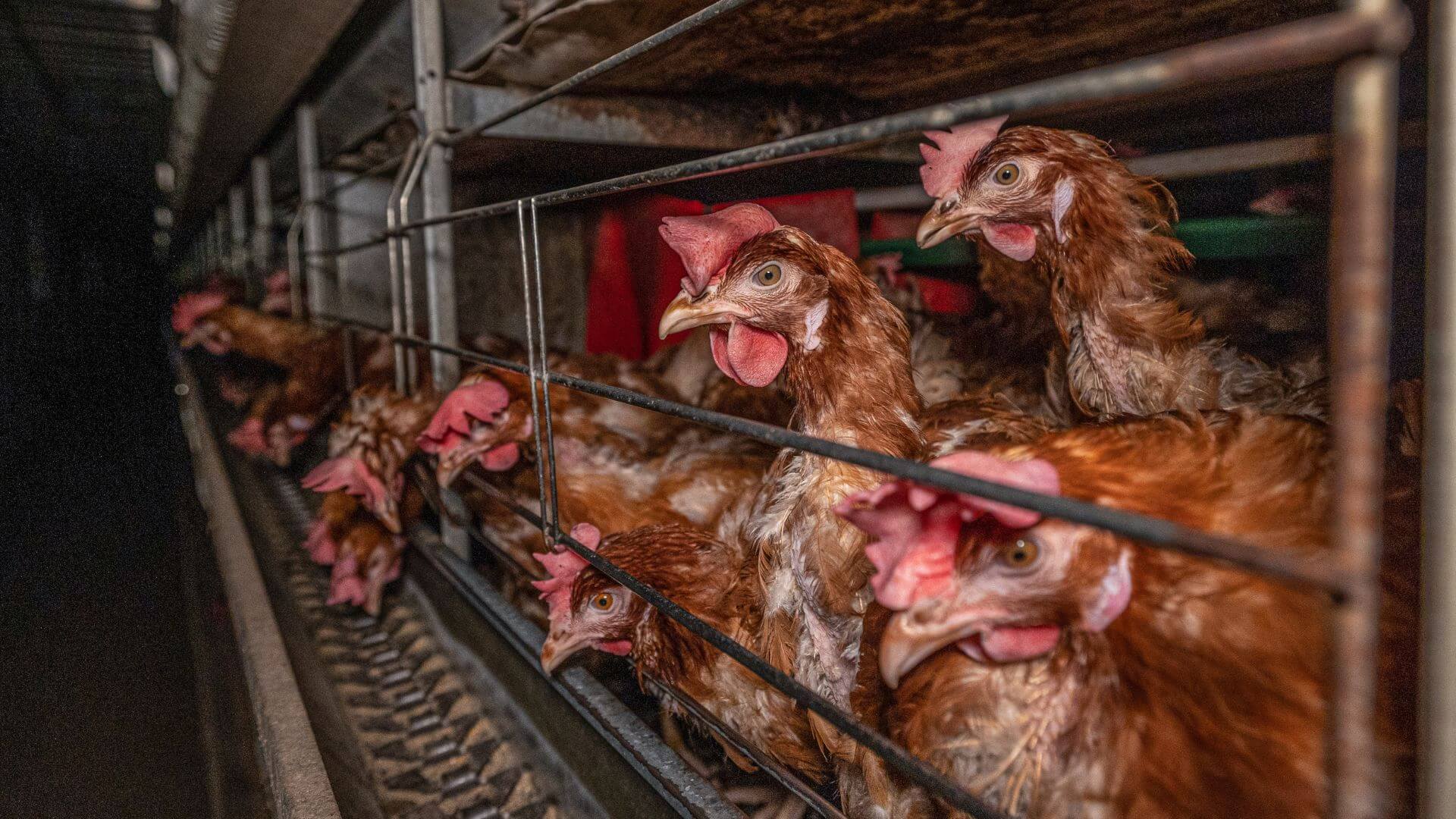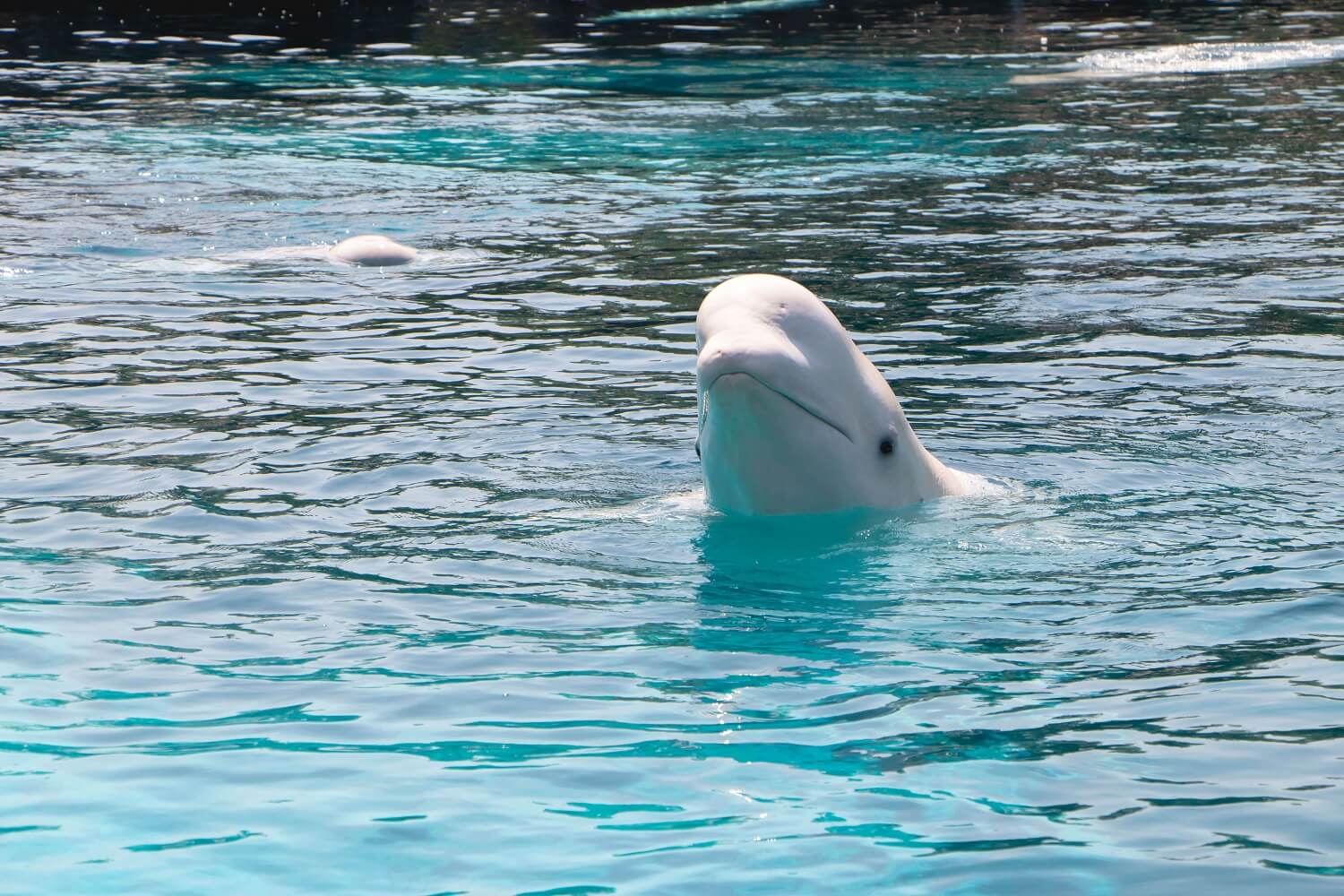Animal Justice has filed a lawsuit challenging the Ontario government over a troubling “ag gag” (agricultural gag) law that was passed last year to cover up animal cruelty at farms, slaughterhouses, and transport. This is the first lawsuit to challenge the constitutionality of an ag gag law in Canada.
Along with journalist Jessica Scott-Reid, and animal advocate and photographer Louise Jorgensen, Animal Justice is asking the courts to strike down Ontario’s ag gag law for violating the Charter-protected right to freedom of expression.
Ontario’s ag gag law came into effect late in 2020, making it illegal to go undercover to expose the animal abuse, food safety risks, and unsafe working conditions that are pervasive in the animal farming industry. The law prohibits entering farms or slaughterhouses under “false pretences”—making it illegal for journalists, animal protection advocates, and others to get hired at a farm or slaughterhouse to document and publicly expose animal abuse or other unlawful activities.
In addition, Ontario’s ag gag law targets peaceful protesters, such as Animal Save Movement advocates, who stand on public property outside slaughterhouses to bear witness to the suffering of animals in transport, and document the condition of animals inside transport trucks. The law makes it an offence to “interfere” or “interact” with animals inside trucks.
Undercover Exposés Are Essential to Expose Cruelty
Shockingly, the government doesn’t regulate or inspect animal welfare conditions on farms, so hidden-camera footage is often the only way for the public to learn the truth about poor conditions and shocking animal cruelty in the food system. Undercover footage shot by employee whistleblowers at Ontario farms and slaughterhouses has led to animal cruelty convictions and has revealed sickening animal suffering, including workers kicking, punching and beating animals; animals crammed into tiny cages and denied freedom of movement; mutilations without anesthesia; botched euthanasia and improper slaughter; filthy conditions; and workplace safety concerns. An exposé by Animal Justice from Paragon Farms, an Ontario pig farm, aired on CTV’s W5 in November, 2020 and prompted an animal cruelty investigation by authorities, which is ongoing.
Ontario’s ag gag law interferes with the right to gather information on matters of public interest, and to peacefully protest on public property—activities at the core of what the right to freedom of expression protects. Not only does the ag gag law infringe the rights of journalists, advocates, and researchers who gather information from farms, but it also violates the public’s right to know how animals are treated behind the closed doors of factory farms.
Ag gag laws originated in the United States, but courts have now struck down ag gag laws in Idaho, Utah, Iowa, North Carolina, Wyoming, and Kansas. Canadian legal experts have warned that Ontario’s ag gag law is similarly unconstitutional.
Alberta passed Canada’s first ag gag law in November, 2019, followed by Ontario in June, 2020. Manitoba and Quebec are considering ag gag laws. The powerful farm lobby is pushing for ag gag laws across the country to silence whistleblowers and conceal animal cruelty from the public. Animal Justice is hopeful the court will strike down this troubling ag gag law and make it clear that Ontario and other provinces cannot interfere with Charter rights to protect the profits of the meat industry.




